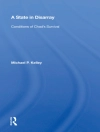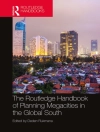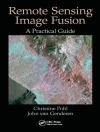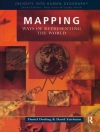Based on in-depth research in Poland and Slovakia, Domesticating
Neo-Liberalism addresses how we understand the processes of
neo-liberalization in post-socialist cities.
* Builds upon a vast amount of new research data
* Examines how households try to sustain their livelihoods at
particularly dramatic and difficult times of urban
transformation
* Provides a major contribution to how we theorize the
geographies of neo-liberalism
* Offers a conclusion which informs discussions of social policy
within European Union enlargement
Daftar Isi
List of Plates, Figures and Tables.
Series Editor’s Preface.
Preface and Acknowledgements.
1. Domesticating Neo-Liberalism and the Spaces of
Post-Socialism.
2. Neo-Liberalism and Post-Socialist Transformations.
3. Domesticating Economies: Diverse Economic Practices,
Households and Social Reproduction.
4. Work: Employment, Unemployment and the Negotiation of Labour
Markets.
5. Housing: Markets, Assets and Social Reproduction.
6. Land and Food: Production, Consumption and Leisure.
7. Care: Family, Social Networks and the State.
8. Conclusion.
Bibliography.
Appendix 1: Summary Information on Interviewed Households.
Appendix 2: Semi-Structured Interviews with Key Informants.
Index.
Tentang Penulis
Adrian Smith is Professor of Human Geography and Head of
Department at Queen Mary, University of London. He works on the
economic and social geographies of transformation from state
socialism in East-Central Europe, with a particular focus on
industrial and regional change and on community and household
economies. This research has involved a number of externally-funded
research projects including ESRC, Nuffield, and US National Science
Foundation.
Alison Stenning is Reader in the School of Geography,
Politics and Sociology at Newcastle University. She has worked on
the economic and social geographies of post-socialism for more than
15 years, focusing particularly on issues of work, class, gender
and community. She has published two edited books and more than 40
book chapters and articles in this field, based on research funded
by, amongst others, the ESRC and the Nuffield Foundation.
Alena Rochovská is a Lecturer at Comenius University
in Bratislava. Previously she worked as a Research Fellow at Queen
Mary, University of London on the ESRC-funded project on
‘Social Exclusion, Spaces of Household Economic Practice and
Post-Socialism’. She has published widely on the feminisation
of poverty, feminist geography, and the geographies of social
inequality in Slovakia.
Dariusz Swiatek is a researcher at the
Institute of Geography and Spatial Organisation of the Polish
Academy of Sciences in Warsaw. He previously worked as a Research
Fellow at the University of Newcastle on the ESRC-funded project on
‘Social Exclusion, Spaces of Household Economic Practice and
Post-Socialism’. Swiatek has published widely on unemployment
problems, housing market changes and the development of suburban
areas in Poland.












